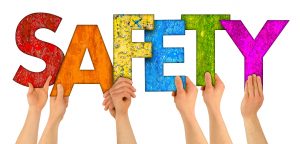
We take Online Safety very seriously at Burnside and ensure pupils are taught about the risks associated with the internet and how to keep safe. Please refer to the following advice in regards to online safety.
Have a conversation
It is really important to chat with your children on an ongoing basis about staying safe online.
Not sure where to begin? These conversation starter suggestions can help.
-
- Ask your children to tell you about the sites they like to visit and what they enjoy doing online.
- Ask them about how they stay safe online. What tips do they have for you, and where did they learn them? What is OK and not OK to share?
- Ask them if they know where to go for help, where to find the safety advice, privacy settings and how to report or block on the services they use.
- Encourage them to help someone! Perhaps they can show you how to do something better online or they might have a friend who would benefit from their help and support.
- Think about how you each use the internet. What more could you do to use the internet together? Are there activities that you could enjoy as a family?
More conversation starter ideas: Childnet’s Parent and Carers Zone
Facts for parents |
Click here for useful fact-sheets designed to help parents manage the risks from certain apps: |
|
|
|
|
|
Click here for the NSPCC online safety advice pages for parents |
|
|
|
|
|
Click here to access the CBBC advice page on Online Safety |
 |
The internet can be a dangerous place, especially for kids. This guide informs you about the potential dangers and instructs you on how to prevent them.
|
| School Policies | Click here for our E-safety and ICT Acceptable Use Policy Pupils |
Online Safety Advice for Parents and Pupils;
- Safer internet browsing; being aware that not all what you read on the internet is necessarily factual or true and that we need to be critical of what we read and use
- Online gaming; that we need to keep our personal information off the internet; use usernames and avatars. Parents should know when you are playing online and should closely monitor who you are playing with. Only play with your friends, and be aware that people who you are playing against may not be who they say they are.
- Cyber-bullying; if you get ANY unwelcome messages or contact off anyone (whether you know them or not), don’t just hope it will go away. Tell and show a trusted adult immediately. Ignore threats that the bully says about not telling anyone – you must; it’s the only way to stop it.
- Social Networking; most social networking sites have an age limit of 13 years. Parents who allow their children to access such sites are knowingly breaching the rules. Be aware that if you lie about your age, you will start to get inappropriate adult content when the internet thinks you are 18.
- Sharing information; never share any personal information online. Despite what you hear, most major internet sites have full ownership of any images posted and it will ALWAYS be there, somewhere. You may live to regret images and comments posted when you are older. Use the ‘granny test’; if you are sharing images or comments you would not share with your granny, then it probably isn’t appropriate.
- Emailing/ blogging; this should only ever be done through school-approved sites. Be careful what you post; the system is designed to flag up inappropriate content and it will be traced back to whoever posted it.



